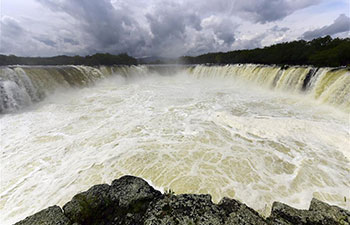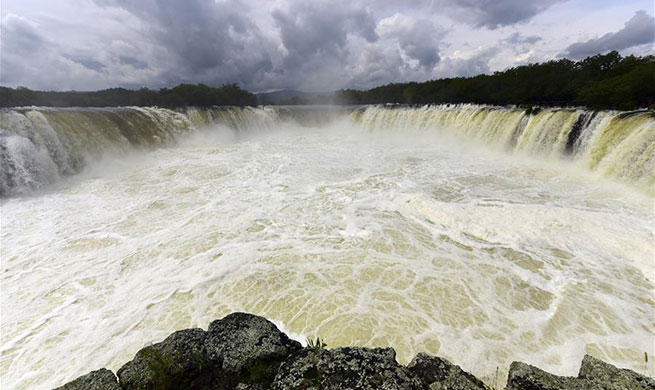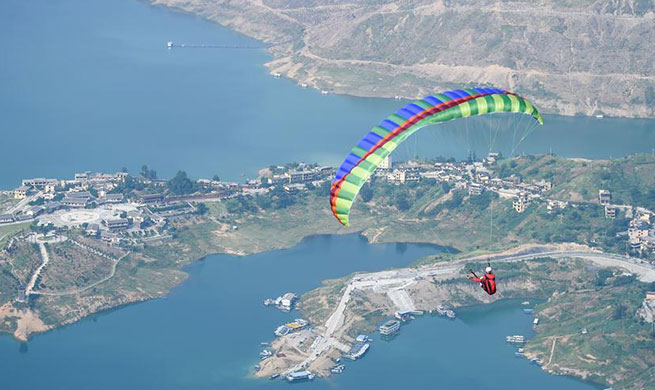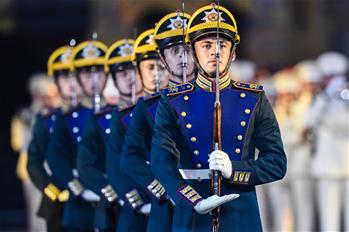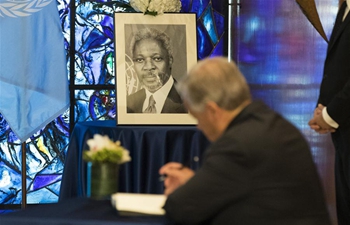NEW DELHI, Aug. 28 (Xinhua) -- Indian Space Research Organisation (ISRO) chairman K. Sivan on Tuesday said that as many as three Indians will be chosen for the country's first human space flight program.
He further stated that ISRO will certainly launch the "Gaganyan" (manned space mission) by 2022, the deadline set by Prime Minister Narendra Modi in his Independence Day speech on August 15.
With this India will become the fourth nation to have launched human spaceflight missions, after the United States, Russia and China.
Interacting with media persons in New Delhi, Sivan said that the three Indians chosen would reach space within 16 minutes of the launch, and will spend five to seven days in the low-Earth orbit before the module takes a splashdown in the Arabian Seas off the coast of western state of Gujarat.
"ISRO will conduct the first unmanned test-flight within 30 months, while the second unmanned flight will be done in 36 months, and finally the first human spaceflight will be launched in 40 months," said the ISRO chief.
According to him, most of the critical technologies needed for the mission like crew escape system, or pad-abort, had already been developed and tests on them were currently going on.
"The spacesuit for the crew is ready. For training the crew, we will send them to a facility in Bengaluru. We are also in touch with the country's first cosmonaut Rakesh Sharma (who made it in 1084) and consulting him for the space mission," he added.
He further said, "The rocket when launched will take the crew to the low-Earth orbit, which is around 125-187 miles from the Earth, within 16 minutes. The crew will spend around 5-7 days in space where they will do several micro-gravity and scientific experiments."
"During the return journey, the orbital module will reorient itself and change its direction. The crew module will apply aero-brake to reduce the speed and parachutes will open just before the splashdown into the Arabia Sea. The return journey from the space to the Earth will take 36 minutes," he added.
According to him, the return journey will have an alternative plan, wherein the crew module will have a splashdown in the Bay of Bengal. Once the module returns, the crew will be safely recovered from the module within 20 minutes.
The crew module will have a diameter of 3.5 meters and will be the size of a small cubicle, with a total mass of seven tons.
Accompanying the ISRO chief on the occasion, India's Minister for Space and Atomic Energy Jitendra Singh said that the mission would be totally indigenous. "We are not sending robots or animals to space first. The reason being there are several advantages of sending humans to space, as they can do several experiments in space and experience the changes in human bevavior including psychological and biological changes," said the Indian minister.

